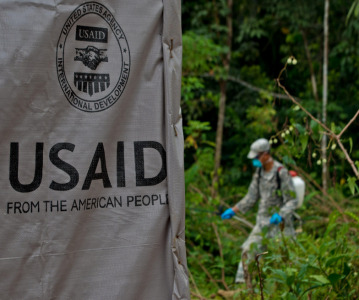BMS and AbbVie receive positive CHMP opinion for investigational antibody, Empliciti, for the treatment of multiple myeloma

Positive opinion based on reduction in the risk of disease progression or death with Empliciti in combination with standard of care regimen for multiple myeloma demonstrated in ELOQUENT-2 study.
Bristol-Myers Squibb Company (BMS) and AbbVie have announced that the Committee for Medicinal Products for Human Use (CHMP) of the European Medicines Agency (EMA) has adopted a positive opinion recommending that Empliciti (elotuzumab), an investigational immunostimulatory antibody, be granted approval for the treatment of multiple myeloma as combination therapy with Revlimid (lenalidomide) and dexamethasone in patients who have received at least one prior therapy. The application now will be reviewed by the European Commission, which has the authority to approve medicines for the European Union (EU).
“Today’s positive CHMP recommendation means we are one step closer to offering a new type of treatment for patients in Europe with multiple myeloma who have received at least one prior therapy,” said Michael Giordano, senior vice president, head of Development, Oncology, Bristol-Myers Squibb. “We look forward to the European Commission’s decision and the opportunity to extend our leading Immuno-Oncology science to patients with multiple myeloma.”
The CHMP positive opinion is based on data from the Phase III, open-label ELOQUENT-2 study, which evaluated Empliciti in combination with lenalidomide and dexamethasone (ERd) versus lenalidomide and dexamethasone (Rd) alone. The results of this trial showed a 30% reduction in the risk of disease progression or death with ERd compared to Rd alone and, at the 2-year time point, ERd delivered a 52% relative improvement in progression-free survival. The most common adverse reactions in ERd and Rd, respectively (>20%) were fatigue (61.6%, 51.7%), diarrhea (46.9%, 36.0%), pyrexia (37.4%, 24.6%), constipation (35.5%, 27.1%), cough (34.3%, 18.9%), peripheral neuropathy (26.7%, 20.8%), nasopharyngitis (24.5%, 19.2%), upper respiratory tract infection (22.6%, 17.4%), decreased appetite (20.8%, 12.6%) and pneumonia (20.1%, 14.2%). These results were published in The New England Journal of Medicine on 2 June 2015.
Related News
-
News US FDA adds haemodialysis bloodlines to devices shortage list
On March 14, 2025, the US FDA published an open letter to healthcare providers citing continuing supply disruptions of haemodialysis bloodlines, an essential component of dialysis machines. -
News Women in Pharma: Manufacturing personal and team success
Our monthly Women in Pharma series highlights the influential lives and works of impactful women working across the pharmaceutical industry, and how the industry can work towards making the healthcare industry and workplace more equitable and inclusive... -
News Pfizer may shift production back to US under Trump pharma tariffs
At the 45th TD Cowen annual healthcare conference in Boston, USA, Pfizer CEO Albert Bourla outlined the potential for Pfizer to shift its overseas drug manufacturing back to the US as pharmaceutical industry players weigh their options against Presiden... -
News Experimental drug for managing aortic valve stenosis shows promise
The new small molecule drug ataciguat is garnering attention for its potential to manage aortic valve stenosis, which may prevent the need for surgery and significantly improve patient experience. -
News Women in Pharma: Connecting accessible pharma packaging to patients – a Pharmapack Special
Throughout our Women in Pharma series, we aim to highlight how CPHI events encourage discussions around diversity, equity, and inclusion initiatives in the pharmaceutical industry. -
News Vertex Pharmaceuticals stock jumps as FDA approves non-opioid painkiller
UK-based Vertex Pharmaceuticals saw their stock shares soar as the US FDA signed off on the non-opioid painkiller Journavx, also known as suzetrigine, for patients with moderate to severe acute pain, caused by surgery, accidents, or injuries. -
News Trump administration halts global supply of HIV, malaria, tuberculosis drugs
In various memos circulated to the United States Agency for International Development (USAID), the Trump administration has demanded contractors and partners to immediately stop work in supplying lifesaving drugs for HIV, malaria, and tuberculosis to c... -
News 2024 Drug Approvals: a lexicon of notable drugs and clinical trials
50 drugs received FDA approval in 2024. The centre for biologics evaluation and research also identified six new Orphan drug approvals as under Biologics License Applications (BLAs). The following list picks out key approvals from the list, and highlig...
Recently Visited
Position your company at the heart of the global Pharma industry with a CPHI Online membership
-
Your products and solutions visible to thousands of visitors within the largest Pharma marketplace
-
Generate high-quality, engaged leads for your business, all year round
-
Promote your business as the industry’s thought-leader by hosting your reports, brochures and videos within your profile
-
Your company’s profile boosted at all participating CPHI events
-
An easy-to-use platform with a detailed dashboard showing your leads and performance












